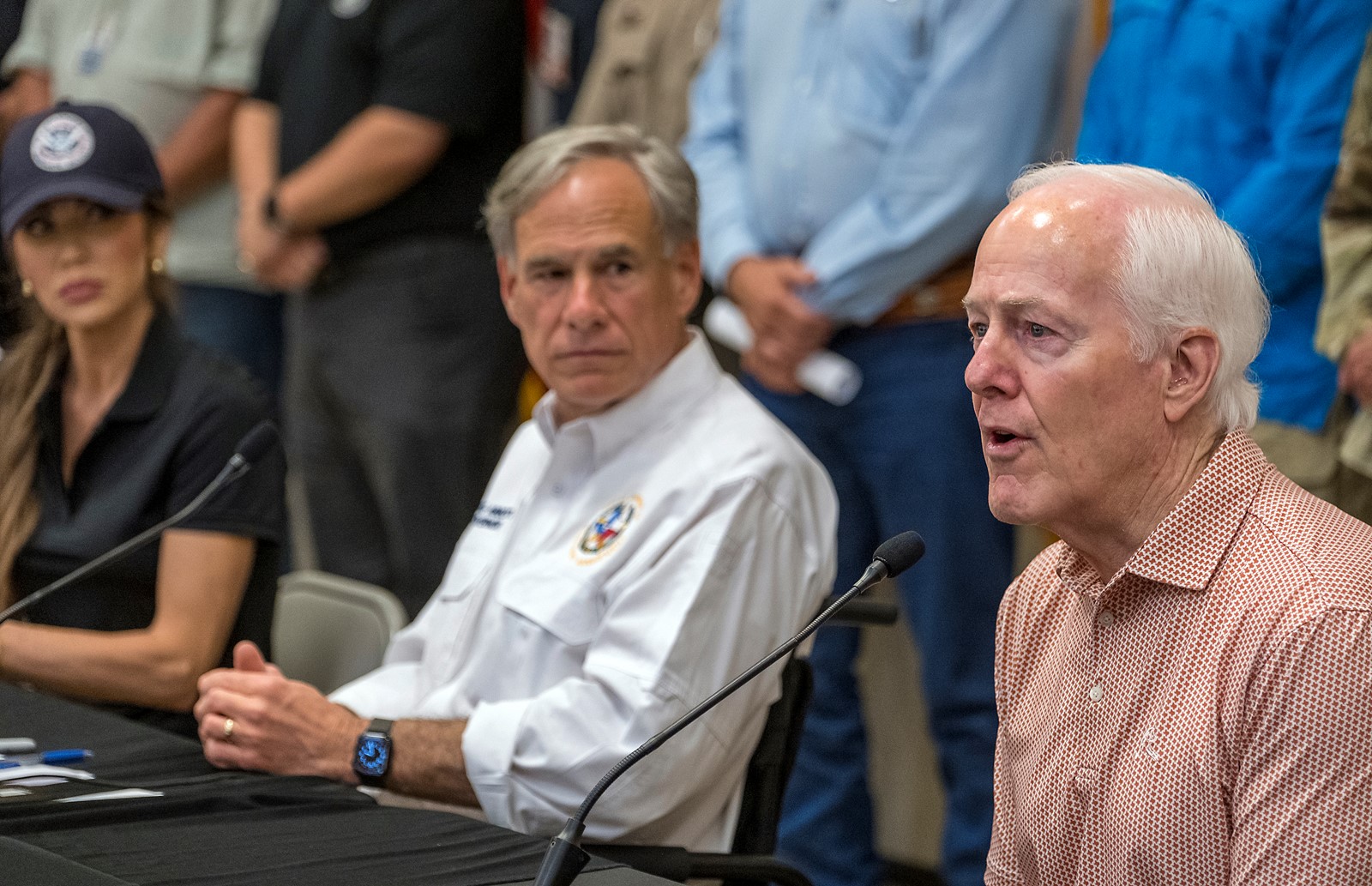
WASHINGTON — Republicans are encountering early headaches in Senate races viewed as pivotal to maintaining the party’s majority in next year’s midterm elections, with recruitment failures, open primaries, infighting and a president who has been sitting on the sidelines.
Democrats still face an uphill battle. They needs to net four seats to retake the majority, and most of the 2026 contests are in states that President Donald Trump easily won in November.
But Democrats see reasons for hope in Republicans’ challenges.
A look at what is happening in some key Senate races.
In Georgia: Republicans see the seat held by Democrat Jon Ossoff as one of their top pickup opportunities next year. But the party remains in search of a well-known challenger after failing to persuade term-limited Gov. Brian Kemp to run.
A potential field includes Reps. Buddy Carter, Mike Collins and Rich McCormick; Insurance Commissioner John King; and Derek Dooley, a former University of Tennessee football coach.
In Louisiana: Republican Sen. Bill Cassidy has faced scrutiny from his party, in no small part for his 2021 vote to convict Trump after his second impeachment.
Will Trump decide to seek retribution against the vulnerable two-term senator or ultimately back him?
Although Cassidy already faces two primary challengers, Louisiana is a reliably Republican state, which Trump won last year by 22 percentage points.
Democrats are hoping a strong contender — potentially former Gov. John Bel Edwards, who has attracted Republican votes in the past — might mount a competitive challenge.
Republicans are awaiting word on whether Rep. Julia Letlow will run.
In May, Gov. Jeff Landry and Trump privately discussed the two-term congresswoman entering the race.
In Michigan: Republicans hope the retirement of Democratic Sen. Gary Peters and a crowded Democratic primary will help them capture a seat that has eluded them for more than three decades. Here, too, all eyes are on Trump.
Republicans are rallying around former Rep. Mike Rogers, who came within 20,000 votes in 2024 of ending that losing streak. But other Republicans could complicate things.
Rep. Bill Huizenga has said he is waiting for guidance from the president on whether he should run against Rogers.
Democrats have their own messy primary, with state Sen. Mallory McMorrow up against Rep. Haley Stevens, state Rep. Joe Tate and former Wayne County Health Director Abdul El-Sayed.
In North Carolina: The surprise retirement announcement by two-term Sen. Thom Tillis has set off a frenzied search for a replacement in a state widely seen as Democrats’ top pickup opportunity. He repeatedly clashed with Trump, including over Medicaid changes in the tax cuts and spending bill that was eventually signed into law, leading the president to threaten to back a primary challenger.
All eyes are now on Lara Trump, the president’s daughter-in-law, who is mulling whether to run in her home state as other potential candidates stand by. Having a Trump on the ballot could boost a party that has struggled to motivate its most fervent base when Donald Trump is not running. But Lara Trump lives in Florida and has sounded muted on the prospect.
Others possible contenders include RNC Chair Michael Whatley, who led North Carolina’s GOP before taking the national job, and first-term Reps. Pat Harrigan and Brad Knott.
Democrats are waiting on a decision from former two-term Gov. Roy Cooper, seen as a formidable candidate by both parties in a state Trump carried by 3.2 percentage points last year.
In Texas: Democrats have long dreamed of winning statewide office in this ruby-red state. Could a nasty GOP primary be their ticket?
National Republicans and Senate strategists are worried that state Attorney General Ken Paxton, who is facing a bevy of personal and ethical questions, could beat Sen. John Cornyn for the nomination.
They fear that Paxton would be a disastrous general election candidate, forcing Republicans to invest tens of millions of dollars they would rather spend elsewhere.
But Cornyn has had a cool relationship with Trump over the years, while Paxton long has been a loyal Trump ally. Paxton raised more than three times as much as Cornyn in the second quarter, $2.9 million compared with $804,000, according to Federal Elections Commission reports.


 PREVIOUS ARTICLE
PREVIOUS ARTICLE
